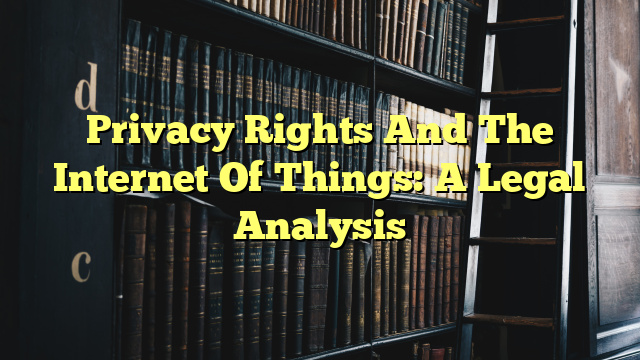Table of Contents
- Do we have a legal right to privacy on the Internet?
- What is the impact of Internet of Things security and privacy?
- What are the privacy requirements in Internet of things?
- What is the legal concept of privacy?
Do we have a legal right to privacy on the Internet?
The answer to this question largely depends on the country in which one is located. In the United States, for example, the Fourth Amendment of the Constitution protects citizens against “unreasonable searches and seizures” conducted by the government. In practice, this means that the government cannot search or seize an individual’s property without a valid search warrant. However, the interpretation of this right as it applies to the internet is still unclear and continues to be debated. In the European Union, individuals are protected by the General Data Protection Regulation (GDPR), which provides individuals with rights over their personal data held by companies. This includes the right to request access to, and deletion of, any such data.
What is the impact of Internet of Things security and privacy?
The impact of security and privacy concerns related to the Internet of Things is substantial. With more and more devices connected to the internet, there is an increased risk of data breaches, malicious attacks, and privacy violations. This can have serious consequences for individuals and businesses alike. Companies must invest in secure and reliable systems to protect their customers’ data, and individuals must be aware of the risks associated with using technology. It is also important to note that governments have a responsibility to ensure that the data collected by connected devices is handled in a secure manner.
What are the privacy requirements in Internet of things?
The privacy requirements for Internet of Things (IoT) vary from country to country. In the United States, the Federal Trade Commission (FTC) has released guidelines for businesses that manufacture and sell IoT devices, which include requirements for data security and privacy. In the European Union, the GDPR imposes strict requirements for companies that collect and process personal data. These requirements include explicit consent for data collection, notification of data breaches, and the right to access and delete data.
What is the legal concept of privacy?
The legal concept of privacy is complex and varies from country to country. In the United States, the right to privacy is protected by the Fourth Amendment, which protects citizens against “unreasonable searches and seizures” conducted by the government. In the European Union, the GDPR provides individuals with rights over their personal data held by companies, including the right to request access to, and deletion of, any such data. In addition to these regulations, many countries have laws that define the limits of what a government or individual can do with personal information. Ultimately, privacy is a complex issue with legal and moral implications, and it is important to understand the laws and regulations pertaining to the use of personal data.

